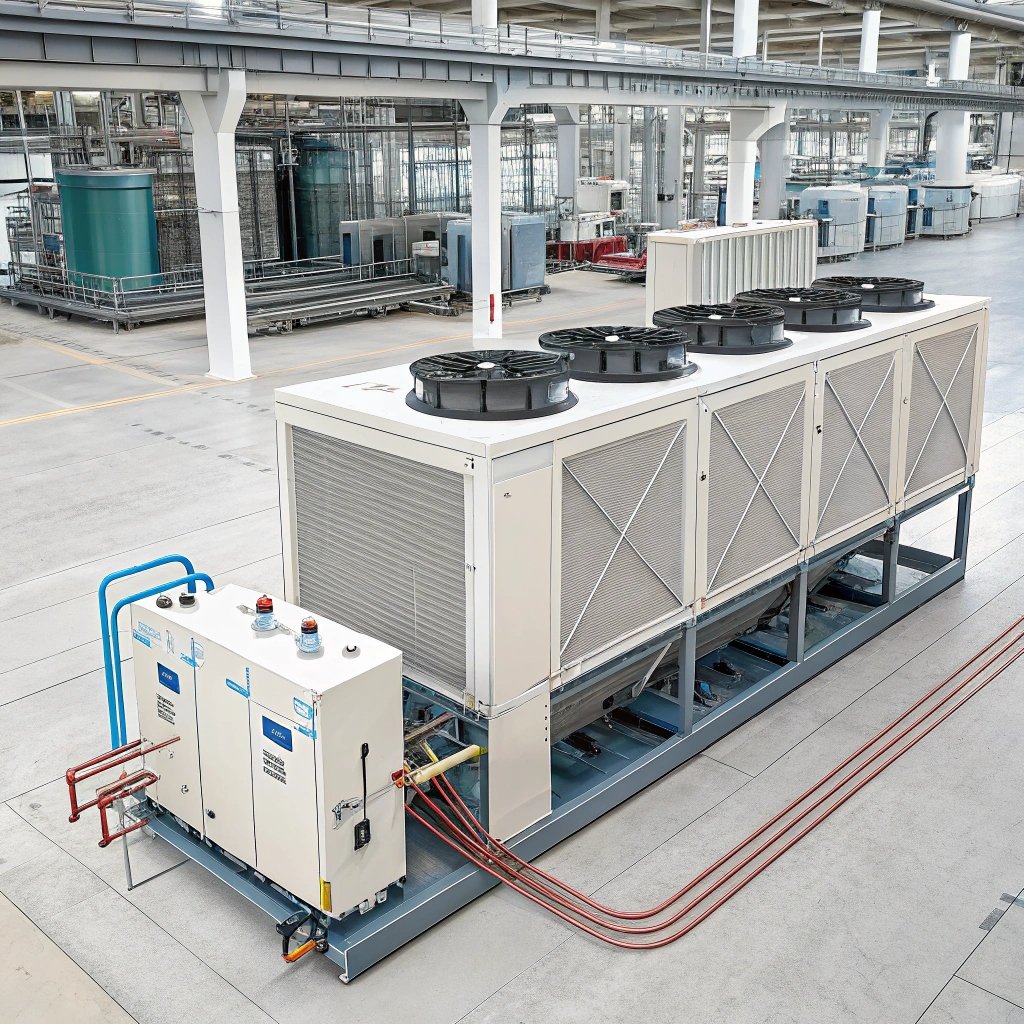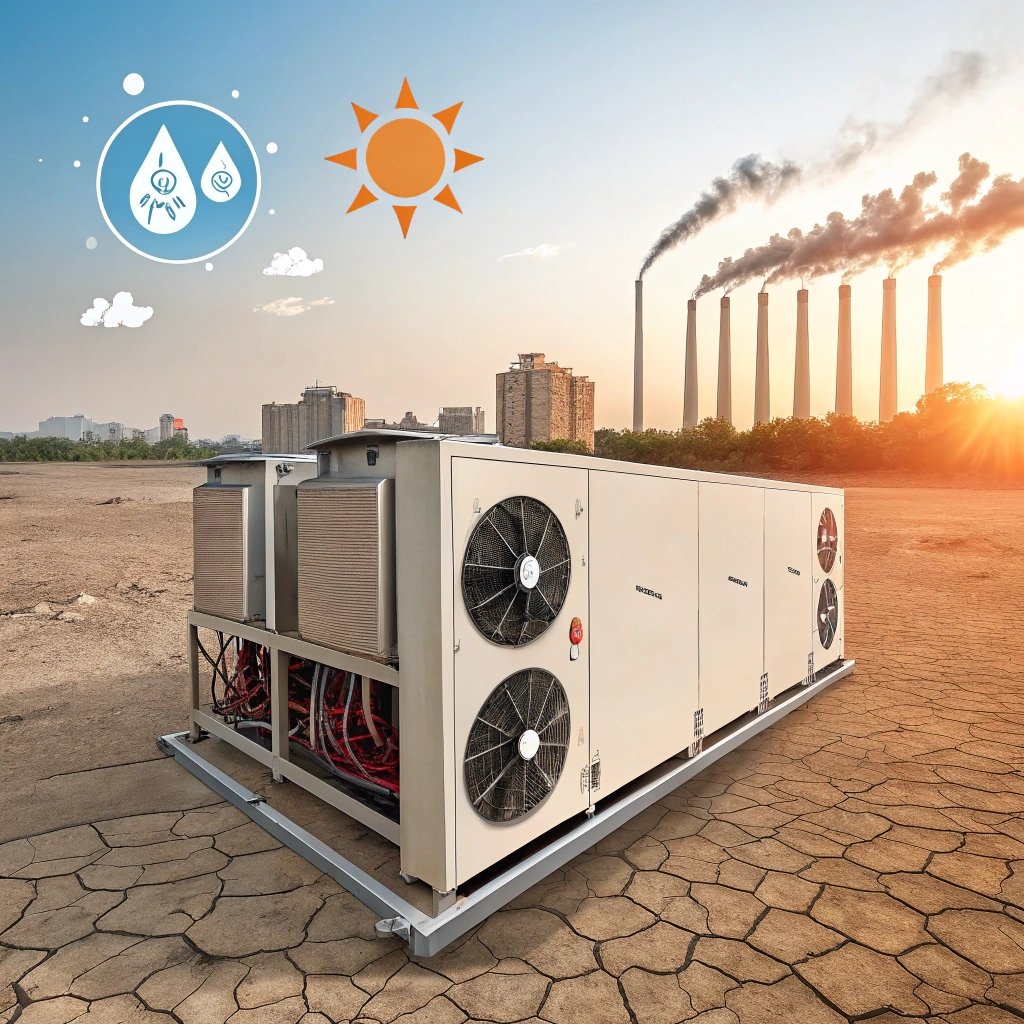What Role Does a Chiller Play in HVAC Systems?
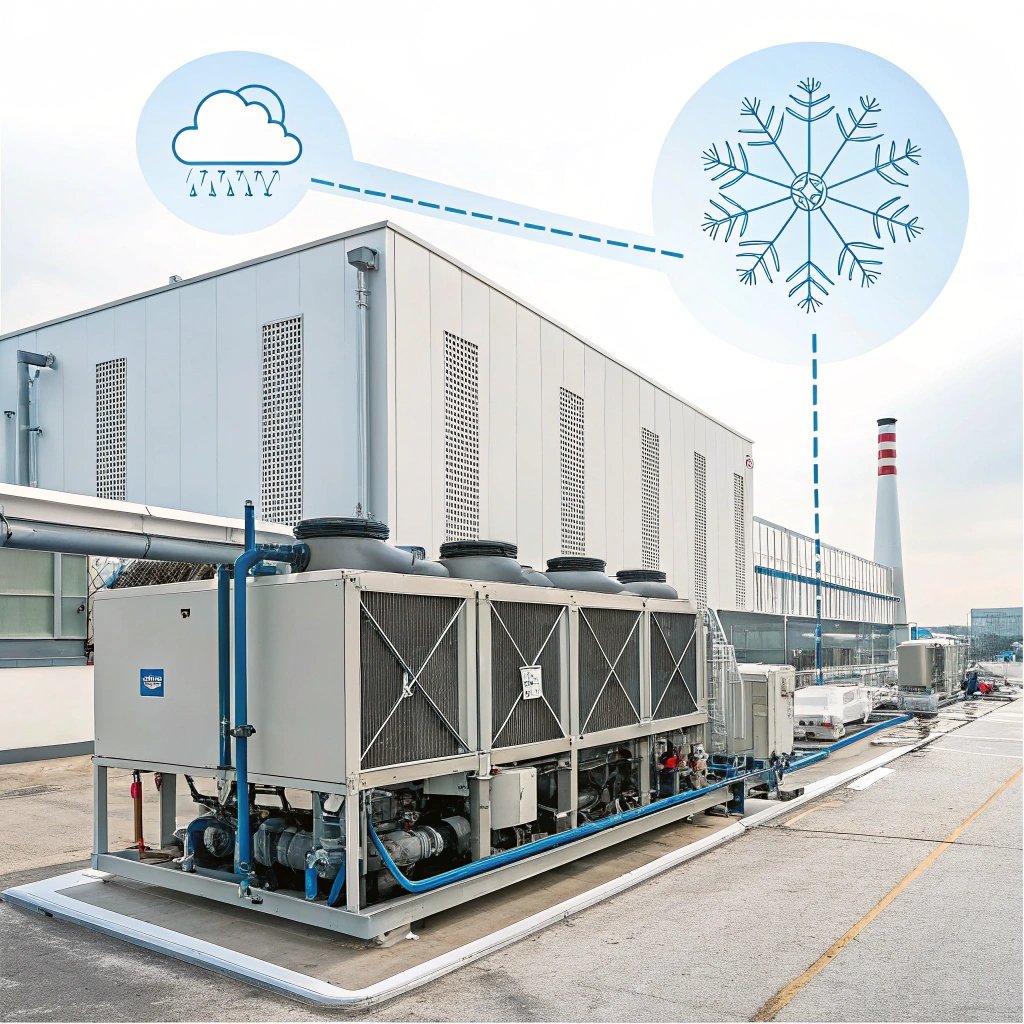
When it comes to keeping buildings comfortable and operational, HVAC systems are the backbone. But what role does a chiller play in these systems?
A chiller in an HVAC system removes heat from water through a refrigeration cycle. The chilled water is then circulated to cool air or equipment, maintaining comfortable temperatures.
Let’s dive deeper into how chillers contribute to the efficiency and effectiveness of HVAC systems in commercial and industrial buildings.
Why Are Chillers Essential in HVAC Systems?

HVAC systems rely on efficient cooling to maintain indoor air quality and temperature. But what makes chillers such a critical component?
Chillers are the primary source of cooling in HVAC systems, especially for large buildings. They provide chilled water to air handling units, which distribute cool air throughout the facility.
Without chillers, HVAC systems would struggle to handle high cooling loads in large-scale environments.
Dive Deeper: Key Functions of Chillers in HVAC Systems
- Heat Removal: Chillers remove heat from water, creating a continuous supply of chilled water for cooling.
- Energy Efficiency: By centralizing the cooling process, chillers optimize energy use in HVAC systems.
- Temperature Regulation: They maintain precise temperature control, ensuring a comfortable indoor environment.
Applications of Chillers in HVAC
- Commercial Buildings: Office complexes, malls, and airports depend on chillers for cooling.
- Industrial Facilities: Factories and warehouses require chillers to maintain consistent temperatures for equipment and processes.
- Data Centers: Critical in preventing overheating of servers and other IT equipment.
Chillers are indispensable for achieving reliable and efficient cooling in diverse HVAC applications.
How Does a Chiller Work in an HVAC System?
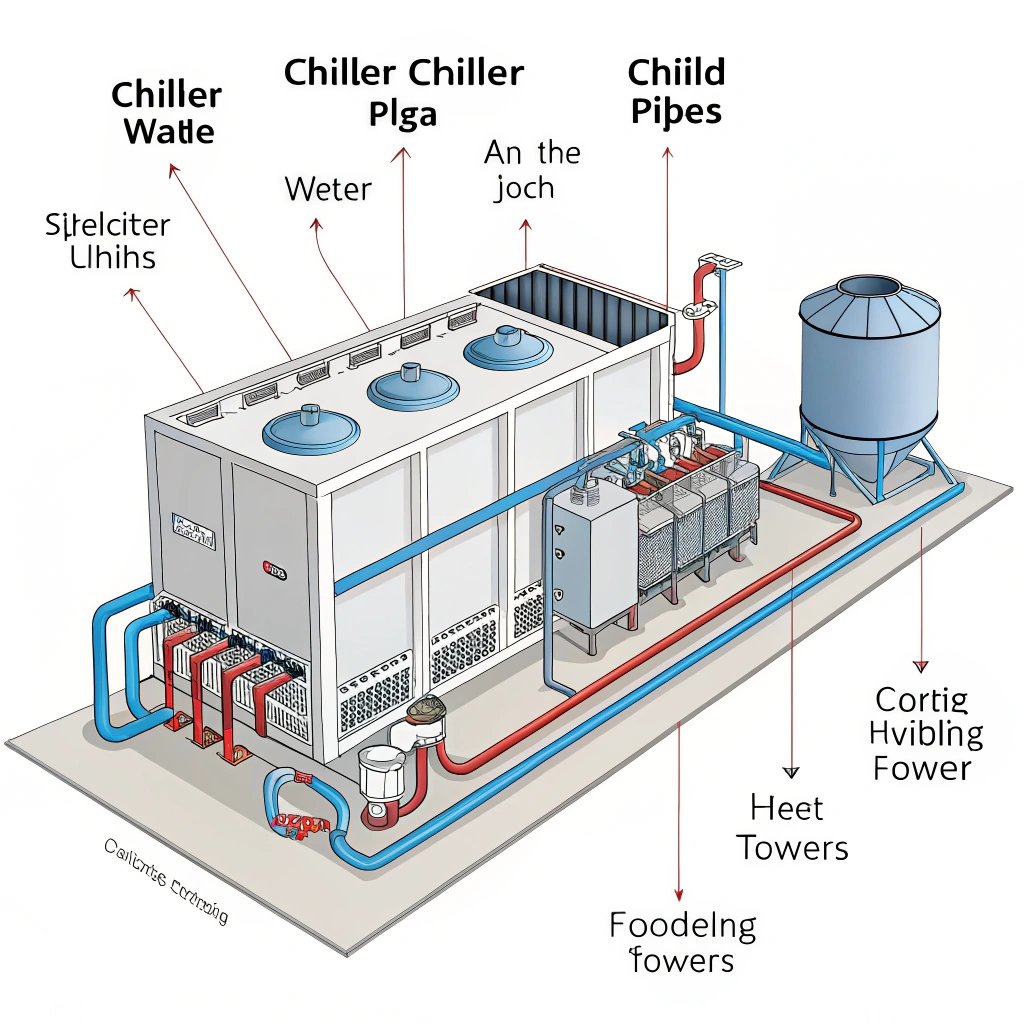
To understand the role of a chiller in HVAC systems, you need to look at how it integrates into the cooling process. So, how does it work?
In an HVAC system, a chiller cools water and sends it to air handling units or fan coil units. These units use the chilled water to cool air, which is then distributed throughout the building.
This cycle repeats continuously to maintain the desired temperature.
Dive Deeper: The Cooling Process in HVAC Systems
Here’s how a chiller contributes to the overall HVAC system:
- Chilled Water Loop: The chiller cools water, typically to a temperature between 4°C and 7°C (39°F and 45°F).
- Air Handling Units (AHUs): The chilled water is circulated to AHUs, which cool the air passing through them.
- Heat Removal: Warm air is exhausted outside or through a cooling tower, while cooled air is recirculated indoors.
- Continuous Operation: The chiller operates in a closed loop, ensuring a constant supply of chilled water.
Key Components in a Chiller System for HVAC
| Component | Role in the System |
|---|---|
| Evaporator | Absorbs heat from the water, lowering its temperature. |
| Compressor | Increases the refrigerant pressure and temperature. |
| Condenser | Releases heat absorbed by the refrigerant. |
| Expansion Valve | Regulates refrigerant flow to control cooling. |
These components ensure efficient operation and seamless integration within the HVAC system.
What Are the Benefits of Using Chillers in HVAC Systems?
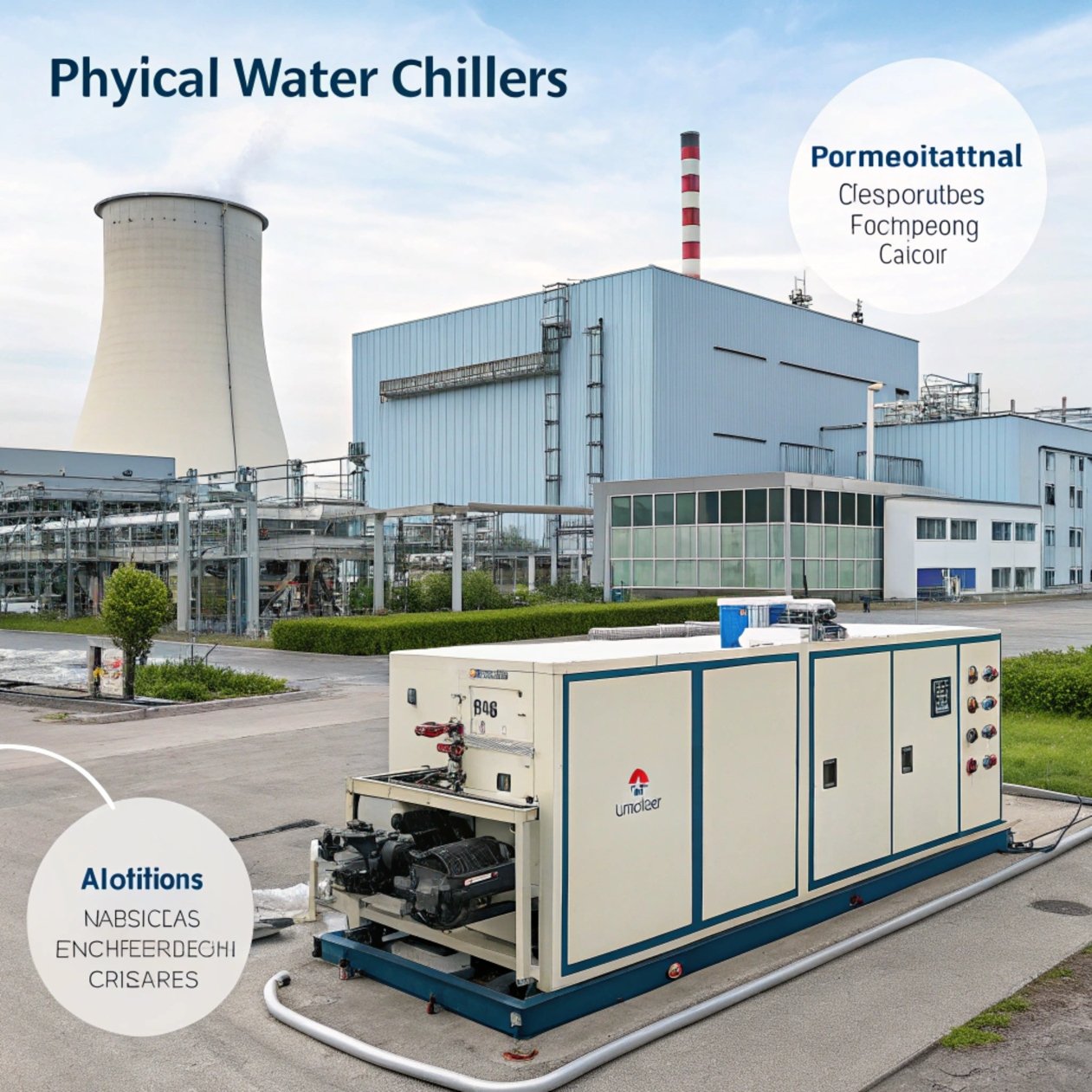
Using chillers in HVAC systems comes with a host of benefits. But how do they improve system performance and energy efficiency?
Chillers enhance HVAC systems by providing consistent cooling, reducing energy costs, and enabling precise temperature control. They also help create a comfortable and healthy indoor environment.
Let’s explore these benefits in more detail.
Dive Deeper: Advantages of Chillers in HVAC
- Energy Efficiency: Modern chillers are designed for minimal energy consumption, significantly lowering operational costs.
- Scalability: Chillers can handle varying cooling loads, making them ideal for large and complex buildings.
- Temperature Control: They provide precise cooling, ensuring a stable indoor climate.
- Reduced Downtime: Reliable chillers minimize system breakdowns, ensuring uninterrupted operation.
- Environmental Compliance: Many chillers use eco-friendly refrigerants and meet stringent environmental standards.
Real-World Examples of Chiller Applications
- Hospitals: Chillers maintain a controlled environment critical for patient care and medical equipment.
- Educational Institutions: Universities and schools use chillers to keep classrooms comfortable, especially in warm climates.
- High-Rise Buildings: Chillers provide centralized cooling for multi-floor structures, ensuring consistent performance.
By integrating chillers into HVAC systems, businesses can achieve both comfort and efficiency.
Air-Cooled vs. Water-Cooled Chillers in HVAC: Which is Better?
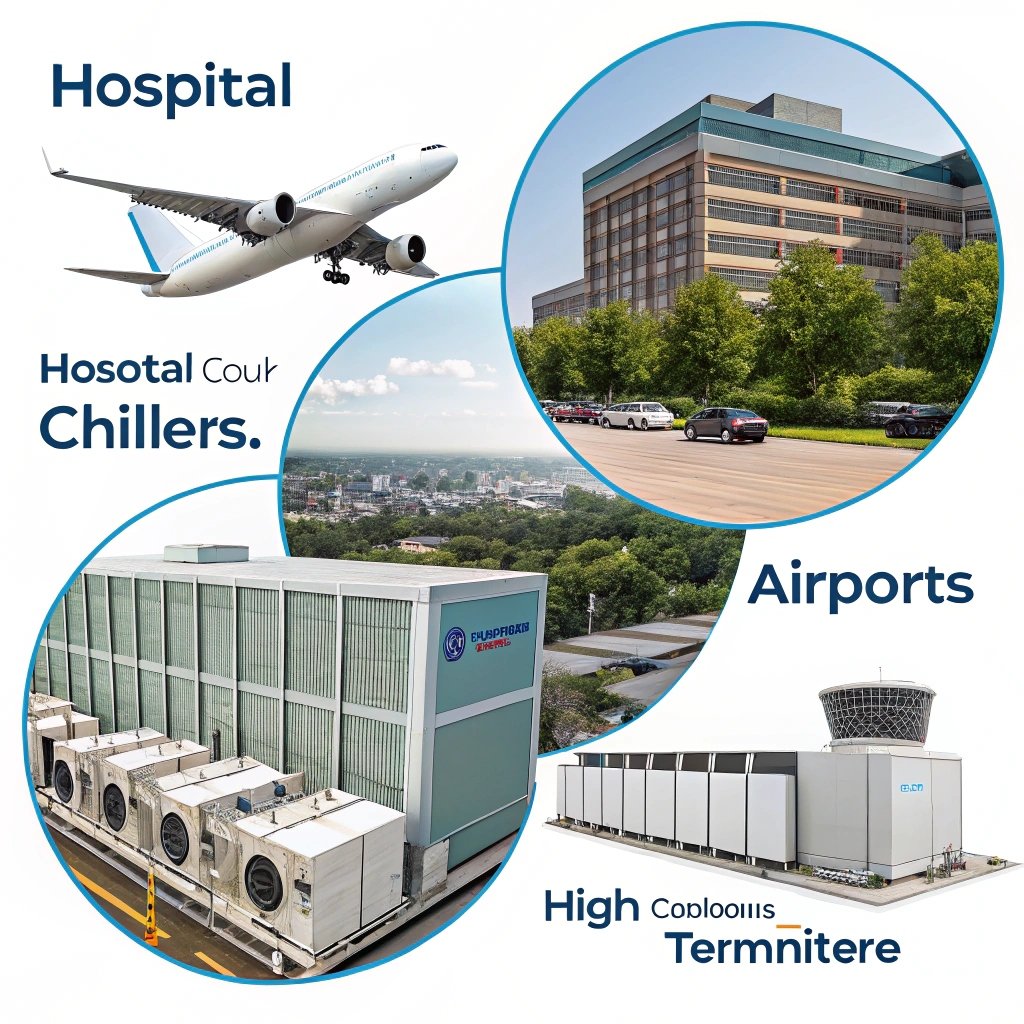
Both air-cooled and water-cooled chillers are widely used in HVAC systems, but which one is better for your application?
Air-cooled chillers are easier to install and maintain, making them suitable for smaller buildings. Water-cooled chillers offer higher efficiency and capacity, ideal for large-scale operations.
The choice depends on your building’s size, cooling requirements, and budget.
Dive Deeper: Comparing Air and Water Chillers for HVAC
| Feature | Air-Cooled Chillers | Water-Cooled Chillers |
|---|---|---|
| Cooling Method | Uses fans to dissipate heat into the air. | Uses water and cooling towers for heat. |
| Installation | Simple, no additional infrastructure needed. | Complex, requires cooling towers and piping. |
| Efficiency | Less efficient for large loads or hot climates. | High efficiency, especially for larger buildings. |
| Maintenance | Minimal maintenance requirements. | Requires regular water treatment and upkeep. |
| Applications | Small to medium-sized buildings. | Large commercial or industrial facilities. |
The right chiller for your HVAC system depends on your specific cooling needs and operational priorities.
Conclusion
Chillers play a central role in HVAC systems, ensuring efficient cooling and temperature control in a variety of settings. Whether you choose an air-cooled or water-cooled chiller, understanding their function and benefits will help you make the right choice for your building.
Insights:
At HAOXINHE, we provide high-quality chillers designed to enhance the performance of HVAC systems. Whether you’re managing a small office or a large industrial facility, we can help you find the perfect cooling solution. Visit HAOXINHE for more information.

